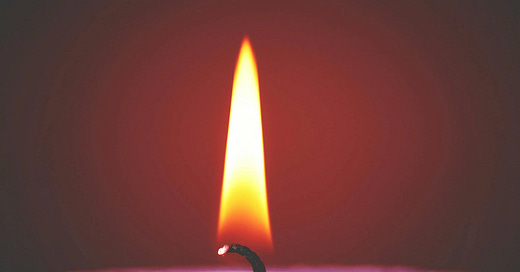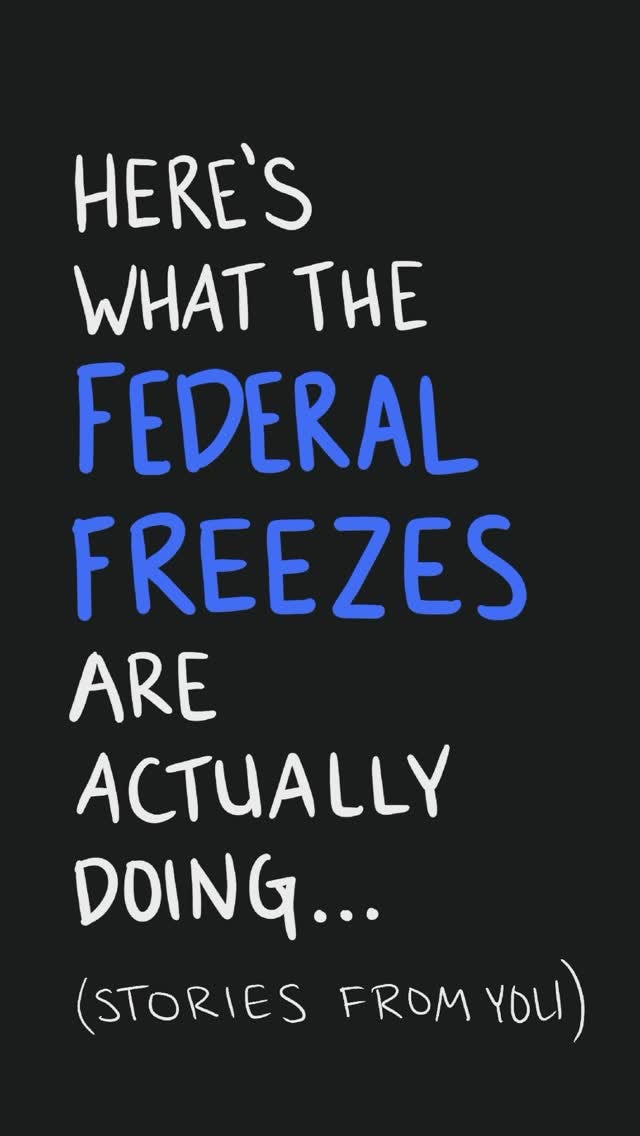During the last two weeks, we’ve seen an avalanche of policies directed at dismantling our already hurting infrastructure for public health. Communication freezes, projects cancelled, USAID brought offline, retraction of publications with “forbidden” terms—it is hard to believe that it has been just over two weeks since this all started.
It feels exhausting. We are exhausted. And I know from hearing from you, you are as burned out and tired as we are.
YLE has said this many times—this is a marathon, not a sprint. The onslaught of changes is in many ways is intended to shock and stun us into hopeless inaction, feeling overwhelmed and not knowing what to address or how to organize a response because so many things are happening all at once. Setting fire after fire so we have to keep chasing them with no time for a break.
One of the effects of this firestorm of destruction of public health agencies is that we are so busy dealing with the next one, we don’t have time to think about successes from yesterday.
While fear can make us sprint, it won’t keep us sustained for the marathon. But hope will—hope that comes from recognizing when efforts are making an impact.
Hope: The antidote to fear
The pace of these firestorms means we rarely have time to reflect on public health wins before another blaze demands our attention. But in just two short weeks, there have already been successes:
Grant freeze memo rescinded. In 24 hours, due in large part to public outcry, the federal grant freeze was shut down. While there are still many concerns about (and cancellations of) funding for specific projects with forbidden terms and specific organizations, the national federal grant freeze did not take effect, largely thanks to pushback from the public and the judicial system.
Archiving resources. As CDC datasets and other health resources have been taken down, journalists, researchers, and volunteers have been archiving websites, data, and patient guidance forms.
Some elected leaders stepping up, from supporting PEPFAR to holding regular “townhalls” on social media to calling out the impact of federal pauses.
Leadership, like CDC advisors, demanding that the agency provide transparency and answers on the removal of critical health data.
Journals standing up for freedom of speech, like the American Journal of Public Health, not being complicit in government prohibition of language.
Legal challenges pushing back against the closing of federal agencies like USAID without the consent of congress.
People from all walks of life stepping up and defending their values, like the National Park rangers.
Camaraderie: Recognizing we are not alone
A week ago, YLE sent a survey to collect insights on the everyday impact of recent Executive Orders (EOs). Over 3,200 of you responded from 50 states, three territories, and across the globe. (The survey is still open if you would like to contribute.)
From Maine to Arizona to international foreign aid posts, you shared how federal funding interruptions jeopardized your ability to provide essential health services, such as HIV treatment, childhood immunizations, and mental health counseling. Your stories were raw and incredibly moving. We tried to do your responses justice in this video:
In addition, an executive summary of these YLE results was sent to several foundations, health policy leaders in the United States and around the globe, and several Congress members. With permission from some respondents, stories were also shared through media.
In trying times like these, sharing your story is your superpower. Policies are abstract until they have a human face. Show people (rather than tell them) why changes are bad (or good) for the health of Americans and our country. The collection of stories and experiences helps to demand a response from and hold our elected leaders accountable.
Bottom line
Power comes from the bottom up, too. We are already seeing that. No one individual can address all the fires, but it’s not our job to. Stay focused on what you can do, support those who are doing work you can’t, and be encouraged that even with all the chaos happening, there are millions of people both quietly and loudly fighting for the public’s health.
There is hope.
Kristen Panthagani, MD, PhD, is a resident physician and Yale Emergency Scholar, completing a combined Emergency Medicine residency and research fellowship focusing on health literacy and communication. In her free time, she is the creator of the medical blog You Can Know Things and author of YLE’s section on Health (Mis)communication. You can subscribe to her newsletter or Substack. Views expressed belong to KP, not her employer.
A big thanks to Dana McLaughlin, MPH for jumping in to create the YLE survey and analyze and summarize the results.
Your Local Epidemiologist (YLE) is a public health newsletter with one goal: to “translate” the ever-evolving public health science so that people feel well-equipped to make evidence-based decisions. This newsletter is free to everyone, thanks to the generous support of fellow YLE community members. To support the effort, subscribe or upgrade below:






I am an emergency medicine (EM) physician and I'd like to suggest a change of expectation and perspective, which I am sure Dr. Panthagani would agree with as she learns emergency medicine. To the untrained eye, every day in an emergency department is chaotic. During training, EM physicians learn to expect and manage daily chaos allowing us to rapidly identify the sickest people while still caring for everyone else. Like the early pandemic, the administration has many advantages, for the moment. By using the EM model of expectation management, we can calm our minds, use time efficiently and focus on mobilizing our best ideas and resources. Just like treating any severe disease, it's going to take many clear heads to reverse this disaster.
We need you now more than ever. Never has a president done so many stupid things in such a short time with the unanimous support of his party. It is easy to get depressed but your column was a ray of sunshine.